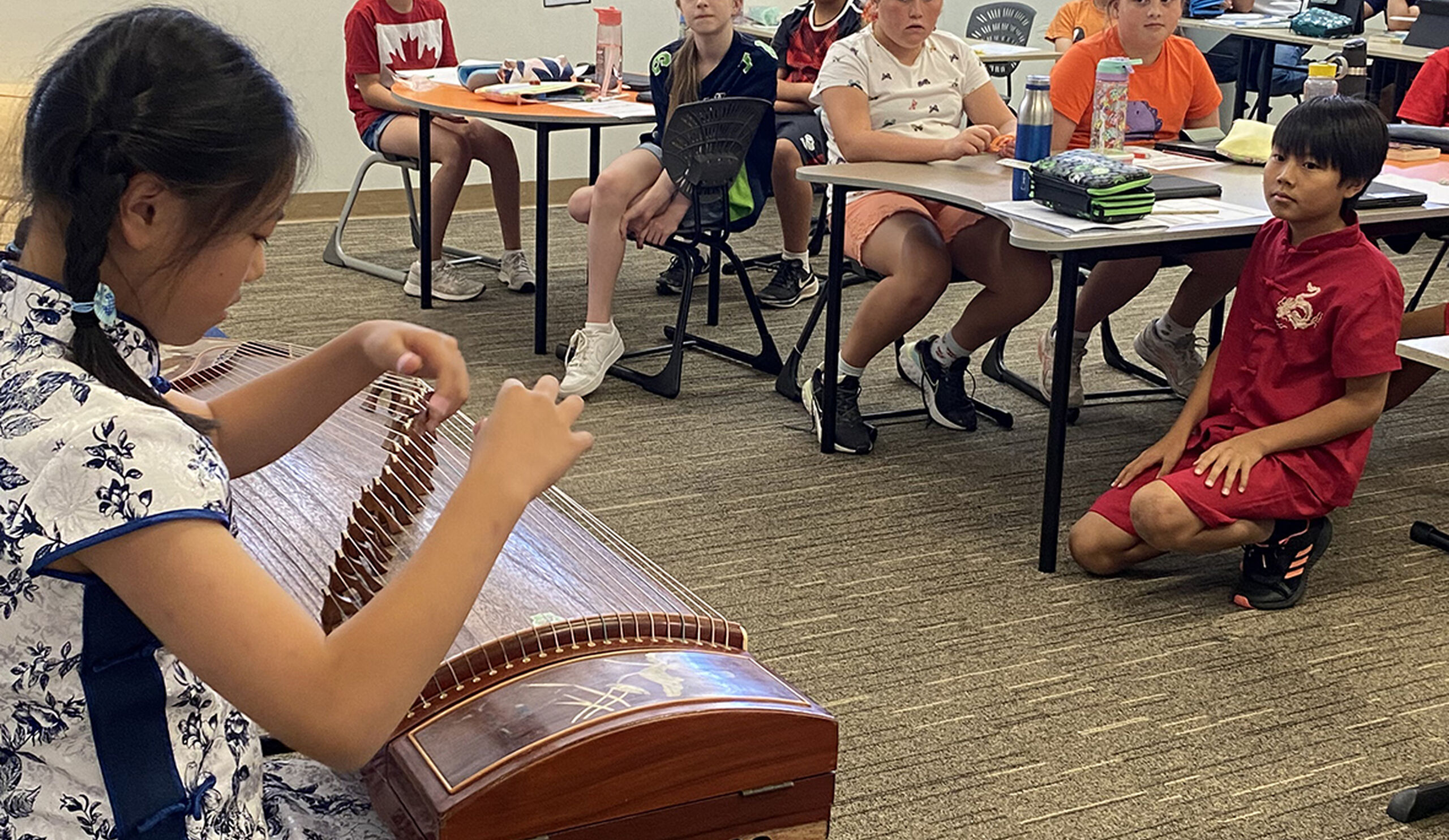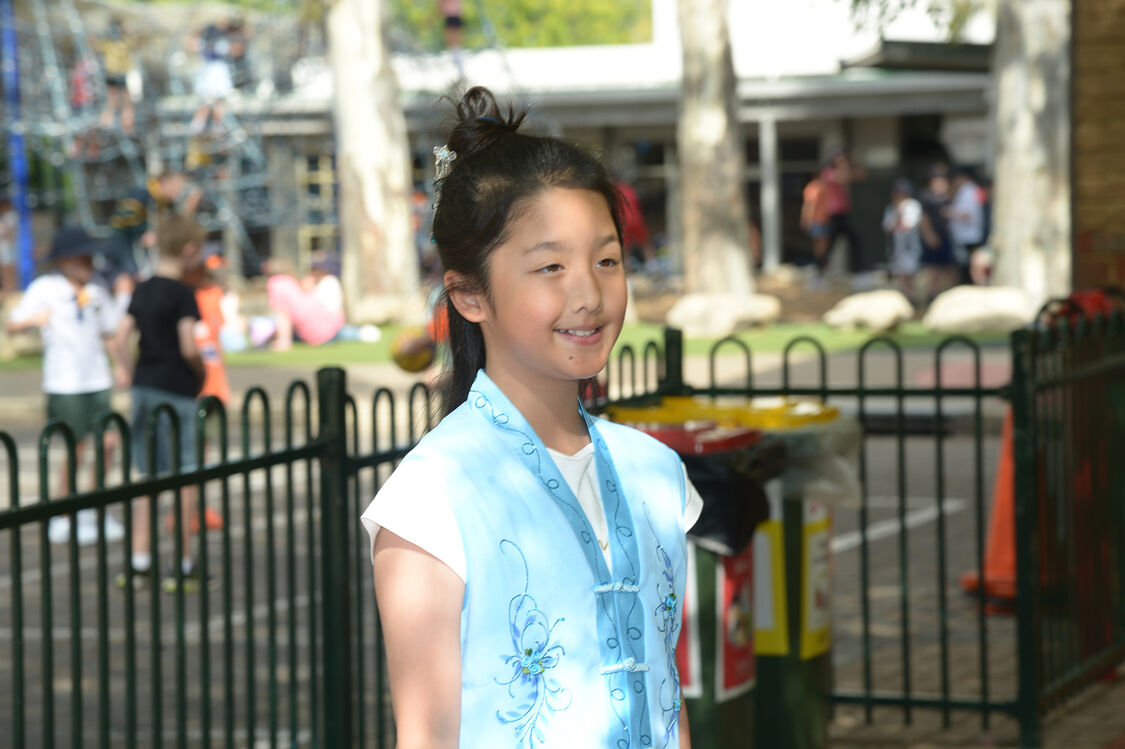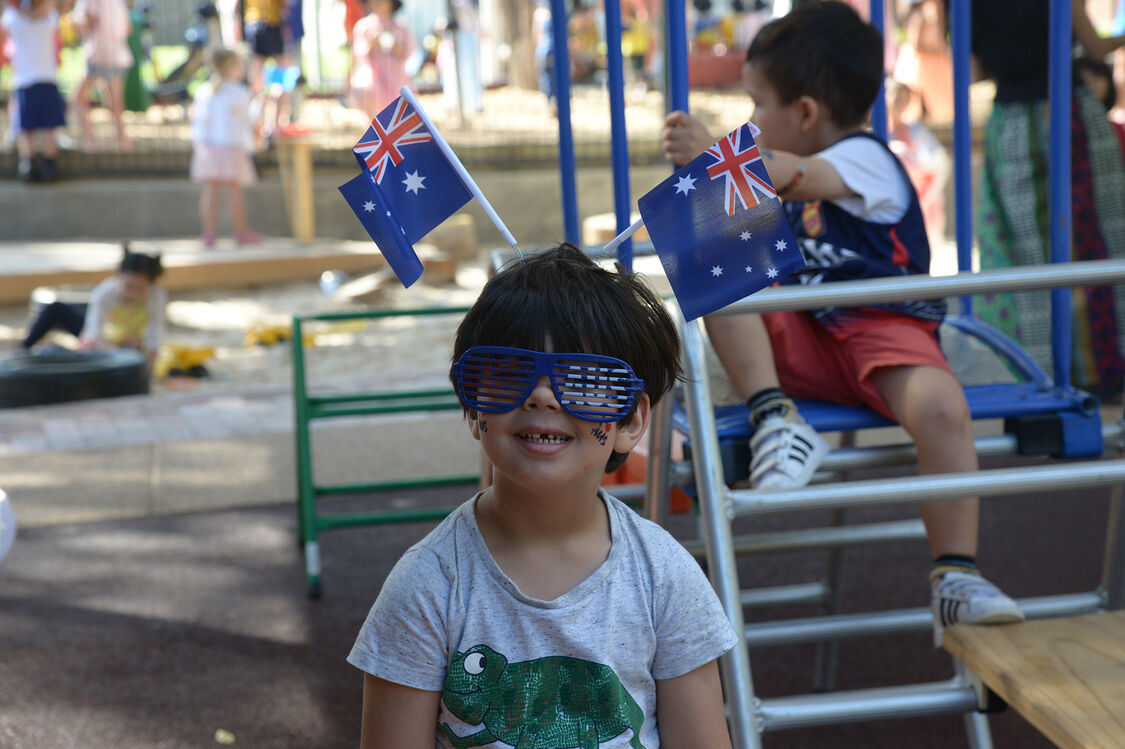28 June 2021
Underpinned by relationships of trust, it is the work of our teachers to create learning environments that reveal the rich diversity of our student body, and to use this to build unity.
Each year Harmony Day enables us to discover something new about our students, highlighting their insatiable quest for meaning and their emerging desire to understand themselves.
вҖҳIn Year 6 we were studyВӯing a How We Express OurВӯselves unit, so we asked our stuВӯdents to share a part of their culВӯture on HarВӯmoВӯny Day that repВӯreВӯsentВӯed вҖӢвҖҳbeauВӯtyвҖҷ. We were exposed to an incredВӯiВӯble colВӯlecВӯtion of mulВӯtiВӯculВӯturВӯal traВӯdiВӯtions alive in the homes of our stuВӯdents today. From tea drinkВӯing ritВӯuВӯals to water pupВӯpets and the most remarkВӯable piece of music played on an ancient ChiВӯnese instruВӯment called the guzheng, our stuВӯdents were awe-inspired disВӯcovВӯerВӯing one anotherвҖҷs unique culВӯturВӯal idenВӯtiВӯties.вҖҷ
Mr FrazВӯer, Year 6 Teacher
Harmony Day is about inclusivity, respect and belonging for all, regardless of cultural or linguistic backgrounds. We choose to mark this occasion in the Junior School by inviting students to explore their connection with a country of their choice and come to School dressed in a national costume. We are aware that the request to wear a вҖҳnational costumeвҖҷ can be interpreted differently by families and we encourage creativity and individuality on this occasion. In our increasingly global society we are conscious that one child may identify with being вҖҳan AustralianвҖҷ quite differently to another. Providing opportunities to discuss this, reveal perspectives, and respectfully wrestle with different thoughts and experiences energises connections.
The Year 5 teachers took the opportunity on Harmony Day to explore the linguistic systems that exist within the names of students in their classes. Some questions included: How does understanding someoneвҖҷs name help us to understand their identity? Why do we abbreviate names so often in Australia? How does knowing how to say someoneвҖҷs name correctly invite a sense of inclusion? What other language systems can we discover when we pay attention to the pronunciation and letter combinations of a name? What sounds exist in some languages but not in English?
Insightful discoveries were made when students dug deeply into the story of their names. Some stories were shared and others were questioned. A number of children felt that their names defined them, while others noted that their family names were changed over time due to migration, marriage laws, adoption, translations and family traditions.
вҖҳPeoВӯple find it hard to read my name because they see the first two letВӯters and get conВӯfused. I think this is because we donвҖҷt see вҖӢвҖҳTsвҖҷ at the start of a word in EngВӯlish so peoВӯple hesВӯiВӯtate and misВӯproВӯnounce it all the time. I corВӯrect them. I like my last name because it comes from Greece, which is where my grandВӯfaВӯther is from.вҖҷ
Leo (Yr 5)
вҖҳI felt proud teachВӯing othВӯers about my famВӯiВӯly and my herВӯitage. It felt good being able to explain how to proВӯnounce my name propВӯerВӯly and tell peoВӯple what it actuВӯalВӯly meant. I felt like they got to know and underВӯstand me betВӯter.вҖҷ
Mia (Yr 5)
вҖҳMy name Zoe means вҖӢвҖңlifeвҖқ in Greek.
My midВӯdle name is my grandmaвҖҷs name. My grandВӯparВӯents were born in Greece and when my grandВӯpa first travВӯelled to AusВӯtralia he was told to change his last name to ChapВӯley. I think if someВӯone took my name away from me and told me to use anothВӯer name I would feel empВӯty. I donвҖҷt think my grandВӯfaВӯther felt good about it but he did it. I think knowВӯing this stoВӯry has made me conВӯnect with my grandВӯparВӯents more and feel conВӯfiВӯdent about my herВӯitage. My grandВӯfaВӯther sacВӯriВӯficed lots of things to move to AusВӯtralia, even his name.
I think it is amazВӯing how my grandВӯparВӯents pushed through so much and evenВӯtuВӯalВӯly ran a superВӯmarВӯket. I am proud of my Yayai and Papau.вҖҷ
Zoe (Yr 5)
Exploring names, rituals and costumes is a joy. Paying attention, imagining, listening and respecting is what enables us to become better, together. These are the cornerstones of international-mindedness.
Belinda ReitstГӨtter
Assistant Head of Junior School (Teaching & Learning)





